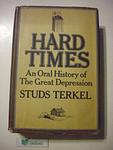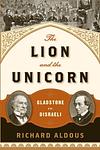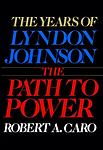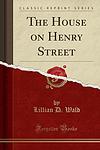The Greatest "Political, Biography" Books of All Time
Click to learn how this list is calculated.
This list represents a comprehensive and trusted collection of the greatest books. Developed through a specialized algorithm, it brings together 300 'best of' book lists to form a definitive guide to the world's most acclaimed books. For those interested in how these books are chosen, additional details can be found on the rankings page.
Genres
The "Political" category of books encompasses works that explore the theory, practice, and history of government and politics. These books may cover topics such as political ideologies, political systems, political institutions, political movements, and political leaders. They may also examine the relationship between politics and other areas of society, such as economics, culture, and international relations. Political books can be both informative and thought-provoking, offering readers insights into the complexities of the political world and the challenges of governing in a democratic society.
Biography is a genre of literature that focuses on the life story of a person, typically a historical figure or a celebrity. It provides a detailed account of the subject's life, including their upbringing, achievements, struggles, and personal relationships. Biographies can be written in various formats, including memoirs, autobiographies, and third-person narratives. This category of books offers readers an opportunity to gain insight into the lives of notable individuals and their impact on society.
Countries
Date Range
Reading Statistics
Click the button below to see how many of these books you've read!
Download
If you're interested in downloading this list as a CSV file for use in a spreadsheet application, you can easily do so by clicking the button below. Please note that to ensure a manageable file size and faster download, the CSV will include details for only the first 500 books.
Download-
1. The Souls of Black Folk by W. E. B. Du Bois
This seminal work is a collection of essays that explores the history and condition of African Americans at the turn of the 20th century. It delves into the issues of race, class, and the socio-economic realities faced by black people post-emancipation. The author employs a combination of history, sociology, and personal narrative to present a powerful critique of American society, highlighting the struggle for civil rights, the importance of black spirituals, and the concept of "double consciousness" - the idea of viewing oneself through the lens of a society that sees you as inferior.
-
2. All the President's Men by Bob Woodward, Carl Bernstein
"All the President's Men" is a non-fiction book that details the investigative journalism conducted by two reporters who uncover the details of the Watergate scandal that led to President Nixon's resignation. The book provides a detailed account of the reporters' struggles to uncover the truth, the obstacles they faced, their persistence, and the ultimate revelation of a political scandal that shook the United States.
-
3. Persepolis by Marjane Satrapi
This graphic novel is a memoir that provides a personal account of the author's childhood and young adult years in Iran during and after the Islamic revolution. The story portrays the impact of war, political upheaval, and religious extremism on ordinary people, while also exploring themes of identity, resilience, and the power of storytelling. Despite the harsh realities the protagonist faces, the narrative also includes moments of humor and warmth, providing a nuanced view of life in Iran during this tumultuous period.
-
4. Facundo by Domingo Faustino Sarmiento
"Facundo" is a socio-political critique and historical account of Argentina during the first half of the 19th century. The book examines the life of the gaucho, Facundo Quiroga, who becomes a powerful and ruthless warlord, illustrating the destructive effects of caudillismo (military dictatorship) on society. The author uses Quiroga's life to delve into broader themes such as the struggle between civilization and barbarism, the need for education, and the dangers of unchecked political power.
-
5. The Power Broker by Robert Caro
This book is a biography of Robert Moses, a powerful figure in New York City and state politics, who wielded immense influence over the urban development of the area in the mid-20th century. Despite never holding elected office, Moses was responsible for the creation of numerous parks, highways, bridges, and public works throughout the city and state. The book delves into the methods Moses used to achieve and maintain his power, his impact on the city, and the controversial legacy he left behind.
-
6. Eichmann in Jerusalem: A Report on the Banality of Evil by Hannah Arendt
This book is a thought-provoking exploration of the trial of Adolf Eichmann, a major organizer of the Holocaust. The author argues that Eichmann was not a fanatical ideologue, but rather an ordinary individual who simply followed orders and bureaucratic procedures, highlighting the terrifying potential for evil in any system that values obedience over personal responsibility. The concept of the "banality of evil" is introduced, suggesting that horrific acts can be committed by ordinary people under certain conditions.
-
7. Life on the Mississippi by Mark Twain
This book is a semi-autobiographical account of the author's experiences as a steamboat pilot on the Mississippi River before the American Civil War. It provides a detailed and humorous depiction of life and society along the river, including the author's own journey from an eager young apprentice to a seasoned riverboat pilot. The book also includes a travelogue of a journey down the Mississippi River much later in life, offering a look at the dramatic changes brought about by industrialization and the Civil War.
-
8. Hard Times: An Oral History of the Great Depression by Studs Terkel
This book is a compelling oral history of the Great Depression, featuring a collection of interviews from a diverse range of individuals who lived through the era. The interviewees include both the ordinary people and famous figures of the time, from businessmen and politicians to artists and criminals. The book provides a vivid, first-hand account of the economic hardship, social changes, and emotional struggles experienced by people during the 1930s, offering a unique perspective on this significant period in American history.
-
9. Disraeli by Robert Blake
This biography provides a comprehensive look at the life and political career of Benjamin Disraeli, one of the most influential figures in 19th-century British politics. The book explores his rise from a debt-ridden novelist to the prime minister of the United Kingdom, highlighting his charismatic personality, sharp intellect, and political acumen. It also delves into his unique approach to politics, his relationships with Queen Victoria and other influential figures, and his enduring impact on British conservatism.
-
10. The Diary of Samuel Pepys by Samuel Pepys
"The Diary of Samuel Pepys" is a detailed personal account written by a 17th-century English naval administrator and Member of Parliament. The diary offers an intimate look at life in London during a time of great historical significance, including the Great Fire of London, the Great Plague of London, and the Second Dutch War. Pepys' entries provide keen observations on politics, social customs, and personal relationships, making it an invaluable primary source for understanding the period.
-
11. Before Night Falls by Reinaldo Arenas
"Before Night Falls" is an autobiographical work that chronicles the life of a young Cuban man growing up during the political turmoil of the Cuban Revolution. The protagonist, a rebellious writer and poet, grapples with his sexual identity in a society that is deeply homophobic. Despite facing persecution, imprisonment, and exile, he remains defiant and committed to his art and personal freedom. His story provides a candid and deeply personal perspective on the harsh realities of life under Fidel Castro's regime.
-
12. Team of Rivals: The Political Genius of Abraham Lincoln by Doris Kearns Goodwin
This book explores the political acumen of Abraham Lincoln, focusing on how he assembled his cabinet from political adversaries, many of whom initially dismissed him for his perceived lack of experience and ungainly appearance. The narrative delves into how Lincoln used his rivals' talents to navigate the tumultuous times of the Civil War, maintaining unity and leading the nation towards the abolition of slavery. It underscores Lincoln's extraordinary ability to turn rivals into allies, demonstrating his leadership and his profound impact on American history.
-
13. The Path to Power by Robert Caro
"The Path to Power" is a detailed biography of a U.S. president, tracing his life from his birth and upbringing in a poor rural community, through his college years, and onto his early political career. The book explores his personal and professional struggles, his ruthless ambition, and his relentless drive for power. It provides a deep insight into his character, his accomplishments, and the controversial methods he used to achieve his goals.
-
14. Lenin's Tomb: The Last Days of the Soviet Empire by David Remnick
This book provides an in-depth account of the final days of the Soviet Union, focusing on the period from 1989 to 1991. It explores the political, economic, and social factors that led to the collapse of the Soviet empire, including the role of key figures such as Mikhail Gorbachev, Boris Yeltsin, and others. The author, a journalist who lived in Moscow during this time, combines historical analysis with personal observations and interviews, offering a unique perspective on this significant period in world history.
-
15. Memoirs Of A Revolutionist by Vera Figner
"Memoirs of a Revolutionist" is a captivating autobiography that chronicles the life of a remarkable woman, detailing her journey from a privileged upbringing to becoming a prominent figure in the Russian revolutionary movement. Through her personal experiences and reflections, the author provides a vivid account of the political and social upheaval in 19th-century Russia, shedding light on the struggles, sacrifices, and triumphs of those dedicated to the cause of revolution. This thought-provoking memoir offers valuable insights into the complexities of revolution and the indomitable spirit of those who fight for change.
-
16. Days In The Caucasus by Banine
"Days In The Caucasus" is a captivating memoir that follows the personal journey of a young woman living in the Caucasus region during the early 20th century. The author beautifully recounts her experiences growing up in a multicultural society, filled with vivid descriptions of the diverse landscapes, traditions, and people she encounters. From her childhood adventures to her first love, the author provides an intimate glimpse into a world on the brink of change, capturing both the joys and challenges of life in the Caucasus.
-
17. The Black Jacobins by C. L. R. James
The book is a seminal historical account of the Haitian Revolution, which took place at the end of the 18th century. It chronicles the brutal conditions of slavery in the French colony of Saint-Domingue and the subsequent uprising led by Toussaint L'Ouverture, a former slave who became a brilliant military and political leader. The narrative delves into the complex social and political dynamics of the time, including the influences of the French Revolution, and examines the broader implications of the successful slave revolt for colonialism and racism. The work is celebrated for its in-depth analysis and its passionate argument for the universal rights of all people to freedom and self-determination.
-
18. Common Ground by J. Anthony Lukas
"Common Ground" is a non-fiction book that provides an in-depth examination of racial tensions in Boston, Massachusetts during the 1960s and 1970s, primarily focusing on the controversial issue of court-ordered busing to integrate public schools. The narrative follows three families - one African-American, one Irish-American, and one Yankee - to depict the effects of these tensions on the city's different communities. The book also explores the historical, political, and social context of these events, offering a comprehensive analysis of a critical period in American history.
-
19. The House on Henry Street by Lillian D. Wald
"The House on Henry Street" is a memoir by a prominent social worker and public health advocate, detailing her experiences and work in the Lower East Side of New York City in the early 20th century. The book chronicles her establishment of a settlement house in the area, which provided a range of services including healthcare, education, and employment assistance to the community. The narrative offers a poignant insight into the struggles and resilience of the immigrant population during this period, and the author's pioneering role in public health nursing and social reform.
-
20. Personal History by Katharine Graham
"Personal History" is an autobiography of a woman who inherited a media empire, The Washington Post, following her husband's suicide. The book explores her journey from a privileged yet sheltered upbringing to leading one of the most influential newspapers in the United States. It provides an intimate look into her personal life, including her struggles with self-confidence and her role in the coverage of significant historical events such as the Pentagon Papers and the Watergate scandal.
-
21. Ghana: The Autobiography Of Kwame Nkrumah by Kwame Nkrumah
This autobiography tells the story of Kwame Nkrumah, the first President of Ghana and a key figure in the country's struggle for independence from British colonial rule. Nkrumah recounts his early life, his education abroad, and his political journey, providing insights into his vision for a united and prosperous Africa. He reflects on the challenges faced during his presidency, including the economic and political obstacles that hindered Ghana's progress. Overall, this book offers a personal account of Nkrumah's life and the pivotal role he played in shaping Ghana's history.
-
22. My Life by Leon Trotsky
This autobiography provides a detailed account of the life of a prominent Russian revolutionary and Marxist theorist. The book traces his early life, education, and political development, his role in the Russian Revolution and Civil War, his leadership of the Red Army, and his expulsion from the Communist Party and subsequent exile. It offers a unique perspective on key events in 20th-century history and an insight into the author's complex personality and intellectual development.
-
23. Say Nothing by Patrick Radden Keefe
This book is a gripping exploration of the Troubles in Northern Ireland, focusing on the disappearance of Jean McConville, a mother of ten who was abducted by the Irish Republican Army (IRA) in 1972. The narrative weaves together the stories of several key figures in the IRA, including Dolours Price, an IRA member who became disillusioned with the organization, and Brendan Hughes, a former IRA commander. The book delves deep into the political and personal complexities of the conflict, revealing the long-lasting trauma and moral ambiguities that continue to haunt those involved.
-
24. Ella Baker And The Black Freedom Movement by Barbara Ransby
This book is a comprehensive biography that chronicles the life and influence of a prominent civil rights activist who played a pivotal role in some of the most influential organizations of her time, including the NAACP, Martin Luther King Jr.'s Southern Christian Leadership Conference, and the Student Nonviolent Coordinating Committee. It delves into her commitment to grassroots organizing and participatory democracy, showcasing her belief in the power of the people to instigate social change. The narrative highlights her behind-the-scenes work, her emphasis on collective leadership, and her dedication to fighting racial and economic injustice, making a strong case for her as one of the most important, yet often overlooked, leaders of the civil rights movement.
-
25. The Bully Pulpit: Theodore Roosevelt, William Howard Taft, And The Golden Age Of Journalism by Doris Kearns Goodwin
This historical work delves into the vibrant era of early 20th-century America, exploring the close friendship and eventual political rivalry between two presidents, Theodore Roosevelt and William Howard Taft. It also highlights the crucial role of muckraking journalists who, with the support of Roosevelt's bully pulpit, exposed corruption and galvanized public opinion. The narrative weaves together the personal and political dynamics that shaped the Progressive Era, showcasing how these leaders and the press collectively brought about significant reforms and forever transformed the American political landscape.
Reading Statistics
Click the button below to see how many of these books you've read!
Download
If you're interested in downloading this list as a CSV file for use in a spreadsheet application, you can easily do so by clicking the button below. Please note that to ensure a manageable file size and faster download, the CSV will include details for only the first 500 books.
Download























